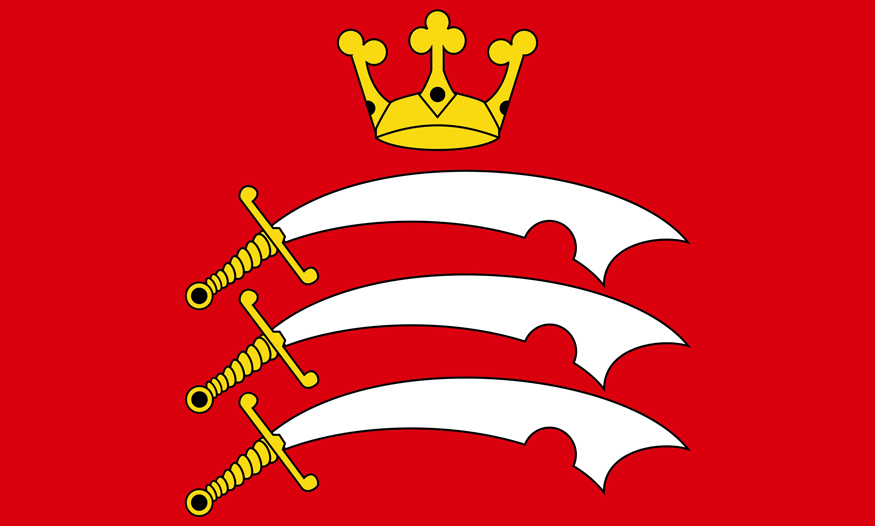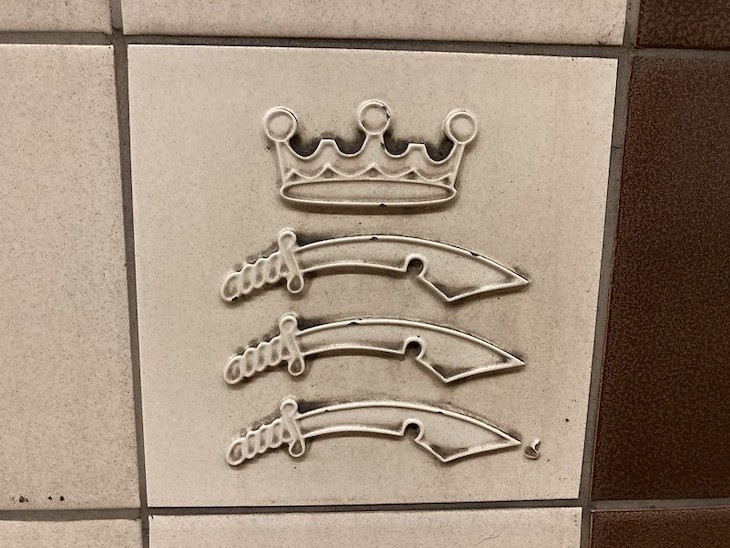
Let's talk about Middlesex.
It doesn't exist. At least, you won't find it on the map of ceremonial counties. The authority disappeared in 1965, when it was absorbed into the freshly minted Greater London.
Nobody pays their taxes to Middlesex County Council. No wheelie bin has MCC daubed on its side. The local authority is now with the Highest Authority, having passed through the municipal gates of council heaven, there to join Westmorland, Cumberland and Humberside. Middlesex was outlived by Charlie Chaplin... by 12 years. This is an ex-county.
And yet we all know people who include Middlesex in their address, like a badge of honour. It's the county that refuses to die, even though three generations have risen since it was abolished.
What was Middlesex?
The origins of the lost country stretch back to Anglo-Saxon times, when this was the realm of the Middle Saxons (in relation to the east, south and western tribes of Essex, Sussex and Wessex). Its borders shifted around over the centuries until it settled down as a chunk of land north of the Thames and west of the Lea.
Originally, central London fell within the ambit of Middlesex. Places like Holborn and Westminster were part of the gang, and that is why we still find the Middlesex Sessions House in Clerkenwell and the Middlesex Guildhall in Parliament Square.

The county was beaten into retreat in 1889, when a large chunk (and a third of the population) was transplanted to the new County of London. On the map above, the salmon moiety to the lower right leaped from Middlesex to join erstwhile bits of Surrey and Kent in the new London authority. From this point on, Middlesex was essentially a quarter-circle of land around London from the 9 O'Clock to 12 O'Clock positions.
Stunted Middlesex, now a the second smallest county, lasted until 1965, when Greater London swallowed most of it whole. The ensuing belch still resonates today.
You can't keep a good county down

Although it disappeared from maps almost 60 years ago, Middlesex continues to lead a curious afterlife. You'll find its name and badge all over town. Some 19,000 students are affiliated to Middlesex University in Hendon. Many more enjoy the batsmanship of Middlesex Cricket Club, based at Lord's. Other seemingly anachronistic sporting bodies include Middlesex Rugby, Middlesex Tennis and the Middlesex County Chess Association.
The London and Middlesex Archaeological Society still unearths long-lost items from its vanished county. Fitzrovia's Middlesex Hospital struggled on into the Noughties before the wrecking balls moved in. North Middlesex University Hospital still exists in Tottenham.
Perhaps most importantly, thousands of Londoners still include the name in their address. How natural to write "Brentford, Middlesex" or "Pinner, Middlesex".
Why won't Middlesex stay dead?

Middlesex's tenacity can be put down to two things. The first is ancient custom. These lands have been known as Middlesex since the time of your forefather's foremother's grandparents. The name was first recorded in 704 CE. You can't just erase a name that's been with us since before even the Vikings rowed up.
The second reason is down to the Post Office. In long-lost days of yore, any letter or parcel sent through the post was supposed to include a county name as part of the address. The official list of postal counties continued to include Middlesex long after the county was abolished in 1965. It was still legitimate to write "Harrow, Middlesex" because that's what an official body — the Post Office — required you to write.
Unhelpfully, this version of Middlesex corresponded only loosely to the County of Middlesex, and came in two disconnected chunks...

Postal counties were abandoned in 1996 in favour of postcodes. It was another nail in the coffin for Middlesex, which had now expired politically and as a postal entity. But old habits die hard and some people continue to write Middlesex when addressing an envelope, even though the word is doubly redundant.
Stuck in the Middlesex with you
Dear Middlesex, dear vanished country friend,
Your neighbour, London, killed you in the end.
So lamented poet John Betjeman in the late 60s, after his beloved Middlesex was deleted from the administrative map. But he'd no doubt be pleased to learn that, more than half a century on, the name is still in common currency.
Indeed, there is one semi-official way that Middlesex still survives as an entity — as an 'Historic County' of England. Historic Counties are nebulous things. They correspond to the ancient counties of Medieval England, before the Victorians and their successors started meddling with borders. They have no political or administrative clout, but they're still cynosures for culture, sport and personal identity.
Historic Counties like Middlesex don't exist in any real, tangible sense, but then neither do the official ceremonial counties. All are the product of the human mind projecting organisational boundaries onto an uncaring landscape. If enough people say that Middlesex still exists as a geographic area, then who's to say that they are wrong?
And Middlesex may one day return. In some not-so-far-off time when the rising Thames overwhelms central London, perhaps our decedents will retreat to the surrounding hills. Administrative boundaries will be redrawn, and some bright spark may rediscover that "dear vanished country friend".



